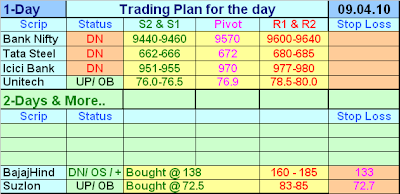Investors need to have rules. Without structure and order you are destined to fail. I always say you should invest or trade like a robot – without emotion and always adherent to your rules. I’ve attached some excellent rules on identifying investment opportunities by the always insightful Howard Marks at Oaktree Capital Management. For more details from myself on investing rules please see here and here:
* No group or sector in the investment world enjoys as its birthright the promise of consistent high returns.
There is no asset class that will do well simply because of what it is. An example of this is real estate. People said, “You should buy real estate because it’s a hedge against inflation,” and “You should buy real estate because they’re not making any more.” But done at the wrong time, real estate investing didn’t work.
* What matters most is not what you invest in, but when and at what price.
There is no such thing as a good or bad investment idea per se. For example, the selection of good companies is certainly not enough to assure good results — see Xerox, Avon, Merck and the rest of the “nifty fifty” in 1974.
Any investment can be good or bad depending on when it’s made and what price is paid. It’s been said that “any bond can be triple-A at a price. “There is no security that is so good that it can’t be overpriced, or so bad that it can’t be underpriced.
* The discipline which is most important in investing is not accounting or economics, but psychology.
The key is who likes the investment now and who doesn’t. Future prices changes will be determined by whether it comes to be liked by more people or fewer people in the future.Investing is a popularity contest, and the most dangerous thing is to buy something at the peak of its popularity. At that point, all favorable facts and opinions are already factored into its price, and no new buyers are left to emerge.
The safest and most potentially profitable thing is to buy something when no one likes it. Given time its popularity, and thus its price, can only go one way: up.Watch which asset classes they’re holding conferences for and how many people are attending. Sold-out conferences are a danger sign. You want to participate in auctions where there are only one or two buyers, not hundreds or thousands.You want to buy things either before they’ve been discovered or after there’s been a shake-out.
* The bottom line is that it is best to act as a contrarian.
An investment that “everyone” knows to be undervalued is an oxymoron. If everyone knows it’s undervalued, why haven’t they bought it and driven up its price? And if they have bought, how can the price still be low?
Yogi Berra said, “nobody goes to that restaurant; it’s too popular.” The equally oxy-moronic investment version is “Everybody likes that security because it’s so cheap.”
* Book the bet that no one else will.
If everyone likes the favorite in a football game and wants to bet on it, the point spread will grow so wide that the team — as good as it is — is unlikely to be able to cover the spread. Take the other side of the bet — on the underdog. Likewise, if everyone is too scared of junk bonds to buy them, it will become possible for you to buy them at a yield spread which not only overcompensates for the actual credit risk, but sets the stage for their being the best performing fixed income sector in the world. That was the case in late 1990. The bottom line is that one must try to be on the other side of the question from everyone else. If everyone likes it, sell; if no one likes it, buy.
* As Warren Buffet said, “the less care with which others conduct their affairs, the more care with which you should conduct yours.” When others are afraid, you needn’t be; when others are unafraid, you’d better be.
It is usually said that the market runs on fear and greed. I feel at any given point in time it runs on fear UorU greed.As 1991 began, everyone was petrified of high yield bonds. Only the very best bonds could be issued, and thus buyers at that time didn’t have to do any credit analysis — the market did it for them. Its collective fear caused high standards to be imposed. But when investors are unafraid, they’ll buy anything. Thus the intelligent investor’s workload is much increased.
* Gresham’s Law says “bad money drives out good.” When paper money appeared, gold disappeared. It works in investing too: bad investors drive out good.
When undemanding investors appear, they’ll buy anything. Underwriting standards fall, and it gets hard for demanding investors to find opportunities offering the return and risk balance they require, so they’re forced to the sidelines.Demanding investors must be willing to be inactive at times.
Source: Oaktree Capital Management.......Courtesy: Manoj Agarwal.


4 comments:
oh sir..amazing..my dad used the same words..
in earlier days fut trades wr named forward with heavy badla charges,,agrmnt ws word of mouth..i hv witnessed whn i ws small..hope u traded it..
i personally(unethical) want to knw hw u map long term investments..do u carry a long-term portfolio..
i do not u chck ths page EOD or live..
but will wait fr reply hr..
Hi..Manu,
"Long term holding" - there are not many but I do go thru' ET, Listen to brokerage reports, etc., and if something catches my attention, will check the charts & take an action. I picked up some "Geojit" few days back after seeing huge volume and some good reports.
sir ..
i do wht my father did..earn frm trading with discpline..take out ur capital(50 %)..put in stocks for longterm almost 5-10yrs..rest 50 % in cash(linked online fd's)..for opportunts like down circuits..
didnt had cash 2 put in march 09 as was ovr with purchasing on 22 jan 08 and sep 08..
plz do guide me..
Post a Comment